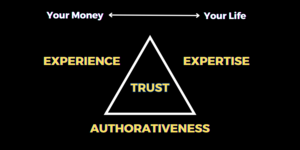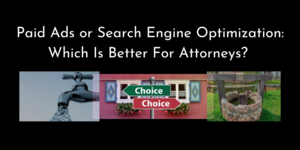Voice Search Is Coming!
Do You Use Voice Search?
Is Your Business Ready For It?
These are two very different questions!
As a consumer of content, how much do you use Voice Search?
With the advent of Alexa, Google Home, and the myriad of devices that allow voice-initiated search activity, they are growing daily. When combined with smartphone-based searches (Siri, etc), it is easy to understand why this area is poised for growth.
According to Google, 30% of all searches today are voice & 31% of smartphone users perform a voice search. While its growth has plateaued of late, those trends are probably more related to two factors unrelated to its long-term potential.
- Voice-based searches were an expected response to the rise of Distracted Driver legislation that limited cellphone usage. Heads-free and BlueTooth integration makes voice search a prime alternative. Covid-19 has led to a marked impact on the amount of time we spend in cars. Our device usage has increased, but on pace with our screen usage.
- There have been challenges for search providers relative to the accuracy and relevance of the results. Some providers (and their algorithms) have shown marked improvement as of late as they blended more ranking factors (like Location, Reviews, and Ranking). What was a challenge or source of frustration is quickly improving.
What does this mean for Content Producers?
The biggest difference between voice-enabled searches compared to text-based searches is the number of results. Whereas a SERP has numerous results for a user query ranked according to the relevance factors, a voice search usually returns a single result! While it can be acceptable to be among the ranked results for text searches, content quality, and other ranking factors needs to be top-of-line.
Specific to keywords or topics, identify a small set (to start 4-6) and work to build ranking for them. Since voice-based searches are usually more natural language, be sure that your content is optimized to satisfy those queries.
- Ensure that your content answers common user queries for the topics and keywords for which you intend to rank
- Have an active program for requesting and managing referrals, recommendations, and links
- If appropriate, be sure that your brand and your content are relevant to the interests of your locale
If you’re interested in Real Estate (be it your own home or as an investor), be sure to check out the weekly Real Estate Coffee Break.
You can check out a replay of the most recent episode at this link.

In our constant effort to create process and drive efficiency, Lean practices, and initiatives like Six Sigma have become the norm across many businesses and organizations.
One issue that has arisen is the pattern of companies and leaders who try to find Processes to address Problems. Problems need solutions and, once found, you can often develop a process that makes your solution repeatable.
In a similar vein, many exercises attempt to drive efficiency. Too often, there are dependencies or related teams who are not involved in the Lean initiatives. The net result of this is the elimination or transition of activities that participants dislike or don’t do well.
This results in the anti-pattern where these exercises result in people trying to drive efficiency in their job as opposed to effectiveness in their work.
When solving problems, creating processes, or making your companies more effective, be sure to focus on the Work; not specific Jobs!
Here are a few other things that I have caught my eye this week! I included a quick synopsis, but I would love to hear your thoughts on them as well!
SEO Cheatsheet
Kudos to David Mims for this graphic that breaks down the main SEO practices. Combined with the details on this page, he provides a SOLID background and guide for improving your results and ranking on search engines.
Google Analytics
I use Google Analytics to track traffic for my websites. It provides details for traffic numbers overall as well as the content within which they interact. Blended with Google Search Console providing information on your rankings from a Search Engine perspective.
Nicht Gut AT&T
It’s worth a look to check out some problems on the horizon for one of America’s telecom giants. Acquisition through debt can be a positive strategy assuming the purchased capability augments existing products or allows greater operational efficiencies. In this case, it seems that they were doing neither.
One painful lesson that AT&T is learning is the dangers inherent to creating an advertising platform lacking the content or audience required to monetize it.
More Plug-in Vulnerabilities for WordPress
This seems to be an unfortunate pattern that keeps recurring. Again, it is a plug-in to WordPress exposing the vulnerability, but the sheer volume of sites exposed (~700k) highlights the importance of site owners to stay vigilant in their operational maintenance (or ensure that their administrators are doing so).
Forsyth County named top work-from-home location
Kudos to FoCo! Some of you have lived there; others have been here. It’s great to be recognized as a great place for remote work.
If there are posts, articles, etc. that you found valuable, add it in the comments below or let me know via email.



